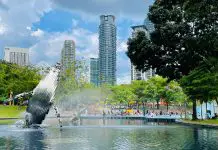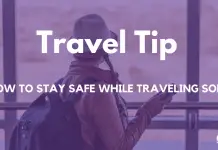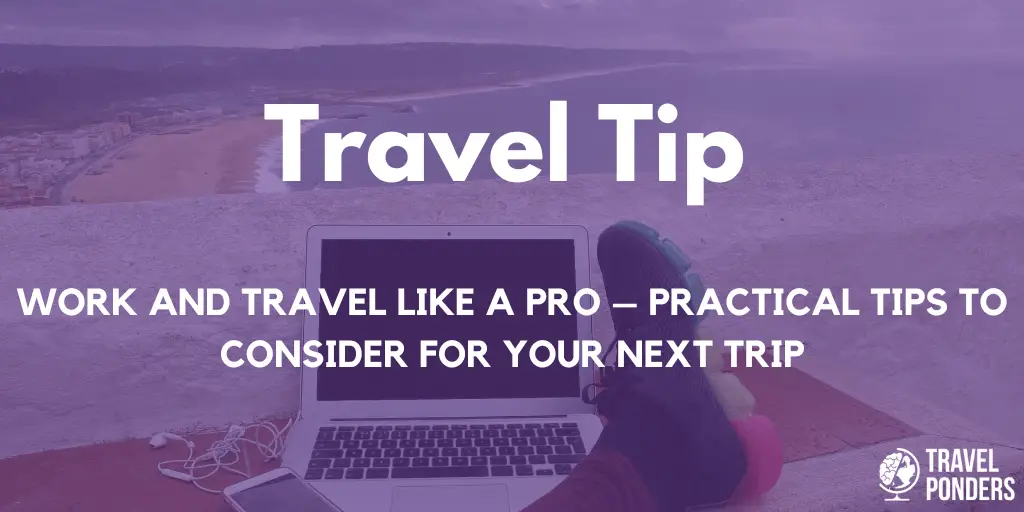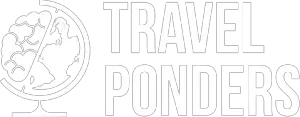Working and traveling can be a hectic experience. You may feel like you’re constantly on the go, with barely enough time to finish your work or see the sights. I’ve experienced this personally as I’ve been working remotely and traveling plenty for the past few years. Luckily, with some organization, you can make both parts of your working and traveling experience easier and more enjoyable.
In this article, I’ll list some practical tips that have helped me a lot. Naturally, not all of these will work for everyone. You can pick and choose whatever can be applied to your work and travel routine depending on your job type, budget, and free time.
Let’s go!
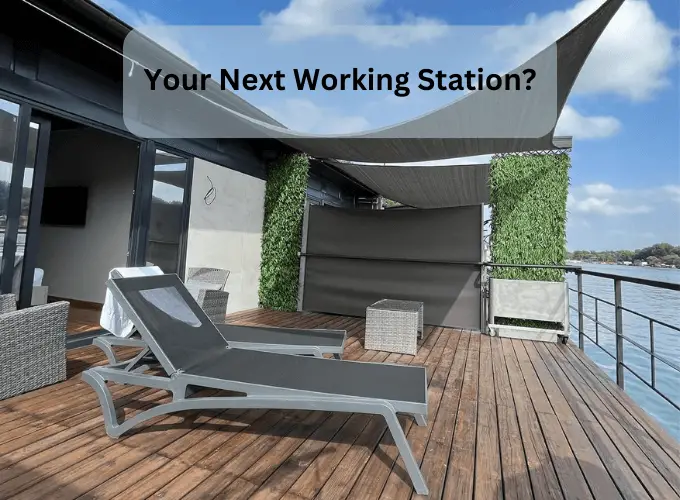
Be Honest With Your Clients/Managers
I used to make the mistake of not telling my clients and managers where I was or what I was doing. My logic was simple – I’m a freelance, remote worker, and I don’t need to disclose that information. However, I must admit I was wrong. Not telling my clients when I’m on the road gave me additional stress as I felt the urge to respond immediately, meet short deadlines, etc.
I’ve switched to the honest approach recently, and it works much better for both sides. Maybe I got lucky working with people full of understanding. Plus, many of them often travel themselves and know how it is. So, while I’m traveling, they don’t give me extra pressure and are flexible with the deadlines.
Of course, this doesn’t mean that you should be irresponsible towards your job in any way. If you lose their trust, you will lose them as clients or lose your job. However, you will be much more relaxed when you don’t have to explain why writing that article took four days instead of two.
Go for Longer Trips
A few times, I made the mistake of traveling for several days only, and I can tell you it just doesn’t make sense. You waste time packing, you waste time traveling around, and when you’re there, it’s either work OR travel. You can’t explore the massive City of Rome or see what the charming Island of Malta has to offer in three days.
I advise booking at least one week, anywhere you go. Even if you have additional free time, that will be the time you’ll use for doing quality work. Otherwise, you will either not see everything, not work at all, or exhaust yourself by doing both.
Get Important Details
You’d be surprised how many people overlook these things while daydreaming about their next work and travel adventure. Some of them were a no-brainer for me from the start, and some I learned the hard way.
Here are some aspects to consider in order to have a pleasant and headache-free experience.
- Check whether you need a visa.
- Check local laws regarding everything pretty much – can you eat on the street, can your tattoos be visible, can you walk around in a bathing suit, etc.
- Check the weather and pack accordingly.
- Check electricity – will you need special outlets or adapters, for example?
- Plan your movement – do they drive on the left side; do they have reliable public transport?
- Know yourself – do you need a desk, or can you work in loud coffee bars instead; what about a coworking space?
For instance, I mostly create professional gambling content for casino affiliate businesses. Many countries restrict my access to online casinos, so I need a reliable VPN service. But in some countries, accessing gambling sites through a VPN may be illegal and get me in trouble. This is just one example of the many things you need to consider before setting off.
Get a Portable Hotspot and a Sim Card – Don’t Rely on Their Internet
This is a self-explanatory tip. I’ve had lots of meltdowns with the internet or the lack of it. I invested in a portable hotspot device and bought a sim card. For example, a Vodafone sim card works like a charm for most European countries. I always have a stable connection wherever I go, no headaches ever. Since I’m working and traveling, it made sense to me to have this extra expenditure as it ensures the smooth completion of my tasks.
Plan Your Time Smartly
Time is our most precious resource in life and, consequently, during work and travel trips. Here are some strategies I use to ensure I make the most out of my time at a destination.
- Plan your tasks beforehand – I usually write things down in a calendar as it gives me a better overview of everything that needs to be done. Plan out your tasks for each day of your trip and stick to them as well as you can.
- Complete tasks earlier if possible – If you have the time and the opportunity to complete tasks even before your trip starts, do it. You don’t have to submit them immediately, but you’ll have them ready to go.
- Delegate some tasks to other people if possible – If you have trusted collaborators or employees, ask them to help you out by taking over some of your tasks. Naturally, pay them well for this because poorly completed tasks mean more stress and wasted time later on.
- Use the daylight for exploring and work at night – This is my way of doing things, at least. I prefer wandering around during the day and working during the night. Sometimes, I take midday working breaks if I want to check out the place at nighttime, too.
- Don’t wait in vain (if possible) – Waiting at airports and train stations for me always means doing some work. Instead of being bored, I get things done, which buys me more time for exploring or resting later. Naturally, do this if the circumstances and surroundings allow it.
- If traveling for work – get extra days to explore – Once, I booked a trip that lasted as long as the conference I was attending. I didn’t see anything aside from a few restaurants around my hotel. The next time I was traveling to participate in a conference, I booked extra days and reserved those for exploring.
Set Your Expectations Straight
People who do this for the first time are often disappointed by the outcome. I think seeing Instagram and LinkedIn posts about how perfect working and traveling is sets some unrealistic expectations. The truth is, it’s either less money or less exploring; you can’t have both.
I decide which one to go for depending on the trip. If I’m in a small place near the beach, I focus on working rather than exploring. If I’m in a destination I want to explore properly, I accept fewer projects or take some time off, whichever applies. This mindset helps me know my priority and put emphasis on the positive things about the trip rather than feeling bad about the less work/sightseeing done.
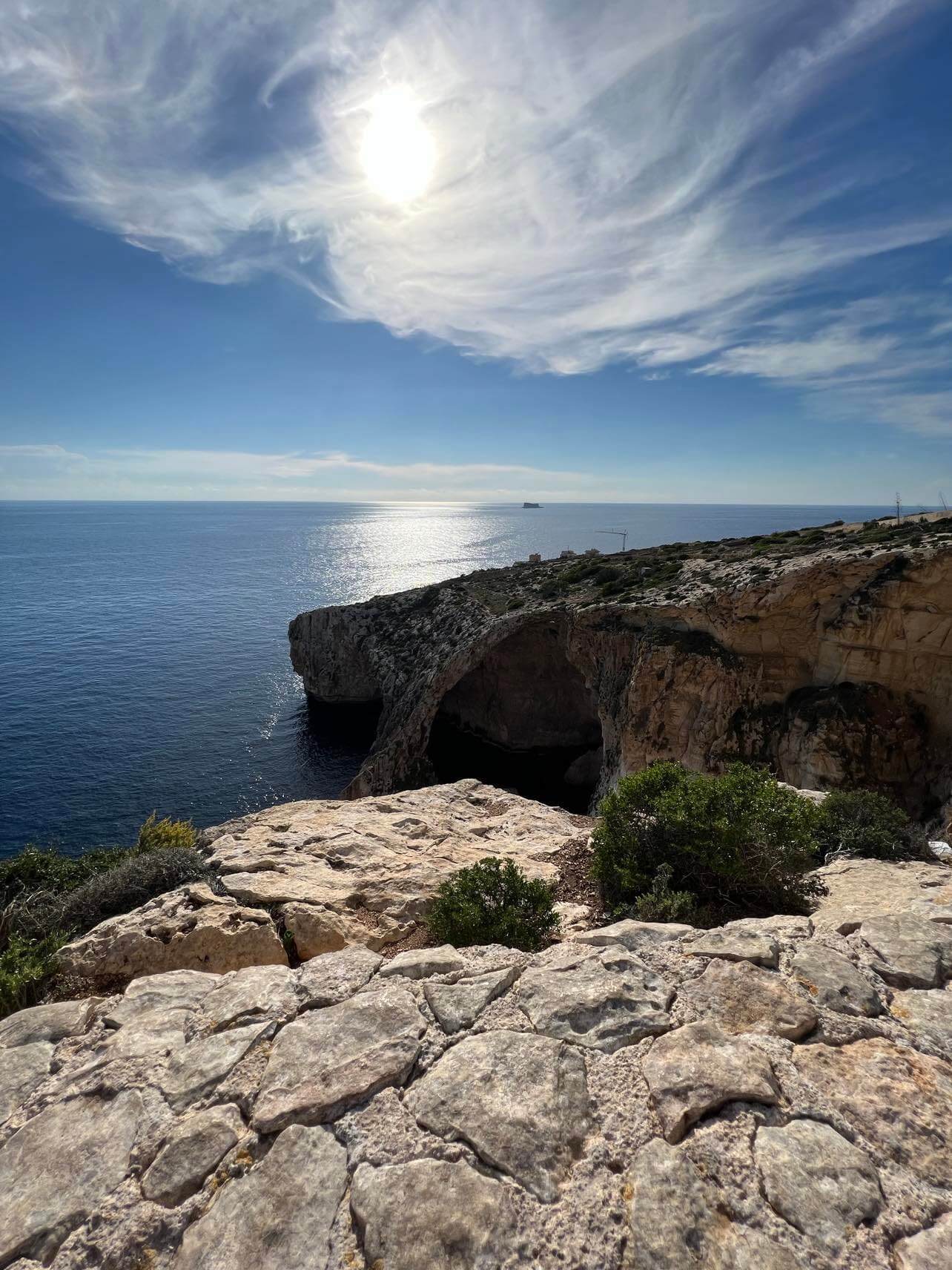
Be Flexible
My final advice is to just be as flexible as possible. Not everything will go to plan; it never does, actually. If you have the luxury of working and traveling, it’s likely that it won’t be the end of the world if completing something takes a bit longer.
There’s no need to stress out or have a breakdown if you fail to complete a task or miss a landmark you wanted to see. Everything can be fixed, and sometimes you’ll have to prioritize or compromise. Still, I say count your blessings, adapt to new situations fast, and don’t waste precious time stressing out.
After all, not everyone is lucky enough to have this work and travel lifestyle.
Since we have this fantastic opportunity, we may as well enjoy it!
This blog post was kindly contributed by: Milena from the content marketing agency Content365.me











